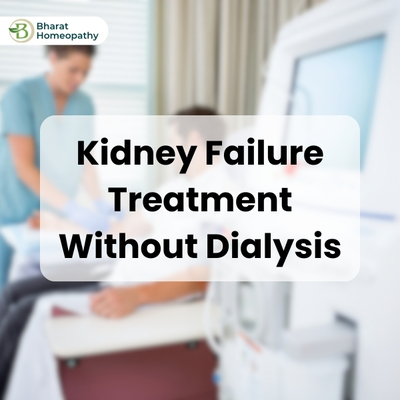|
The human kidneys are vital organs responsible for filtering waste products from the blood and maintaining overall fluid balance. When they fail to function properly, it can lead to serious health issues. In this blog, we will explore various aspects of kidney problem medication, focusing on kidney failure treatment without dialysis, chronic kidney disease treatment, high creatinine treatment, and the search for a cure for chronic kidney disease.
Understanding Kidney Disease
Kidney disease can be acute or chronic. Acute kidney injury is a sudden loss of kidney function, often reversible with timely treatment. Chronic kidney disease (CKD), on the other hand, is a long-term condition where the kidneys gradually lose their function over time. The severity of Chronic kidney disease ranges from mild to severe, with the end stage often requiring dialysis or kidney transplantation.
Chronic Kidney Disease Treatment
Chronic kidney disease treatment aims to slow the progression of the disease, manage symptoms, and prevent complications. Several medications are commonly used in CKD treatment:
ACE Inhibitors and ARBs: These medications help control blood pressure and reduce proteinuria (protein in the urine), which can slow kidney damage.
Diuretics: These help remove excess fluid and control blood pressure, reducing the strain on the kidneys.
Erythropoiesis-Stimulating Agents (ESAs): Used to treat anemia associated with Chronic kidney disease by stimulating the production of red blood cells.
Phosphate Binders: Help control phosphate levels in the blood, preventing bone disease and other complications.
Vitamin D Analogues: Used to manage secondary hyperparathyroidism, a common issue in Chronic kidney disease patients.
High Creatinine Treatment
High creatinine levels indicate impaired kidney function. High Creatinine Treatment involves addressing the underlying cause and managing symptoms:
Medication Adjustment: Reducing or stopping medications that can harm the kidneys, such as NSAIDs and certain antibiotics.
Blood Pressure Control: Using ACE inhibitors, ARBs, or other antihypertensive drugs to manage high blood pressure.
Dietary Changes: Reducing protein, sodium, and phosphorus intake to ease the workload on the kidneys.
Hydration: Ensuring adequate fluid intake to help the kidneys filter waste effectively.
Kidney Failure Treatment Without Dialysis
Dialysis is a common treatment for end-stage kidney failure, but some patients seek alternatives due to the time, cost, and lifestyle disruptions associated with it. Kidney failure treatment without dialysis focuses on conservative management and supportive care:
Diet and Lifestyle Changes: Following a kidney-friendly diet, maintaining a healthy weight, and quitting smoking can help manage symptoms.
Medication Management: Adjusting medications to control symptoms like high blood pressure, anemia, and electrolyte imbalances.
Symptom Control: Using medications and other interventions to manage nausea, itching, and other symptoms of kidney failure.
Advance Care Planning: Discussing future health care preferences with healthcare providers and family members to ensure a clear plan is in place.
|



